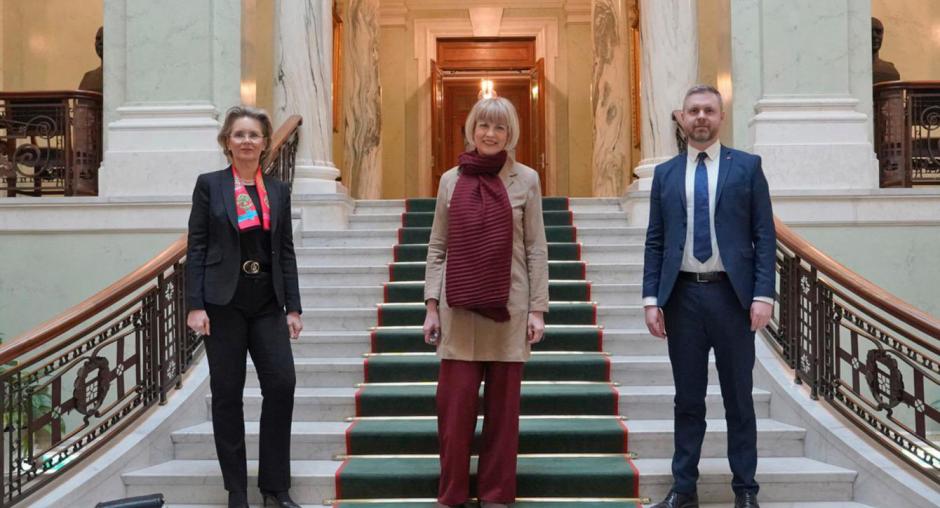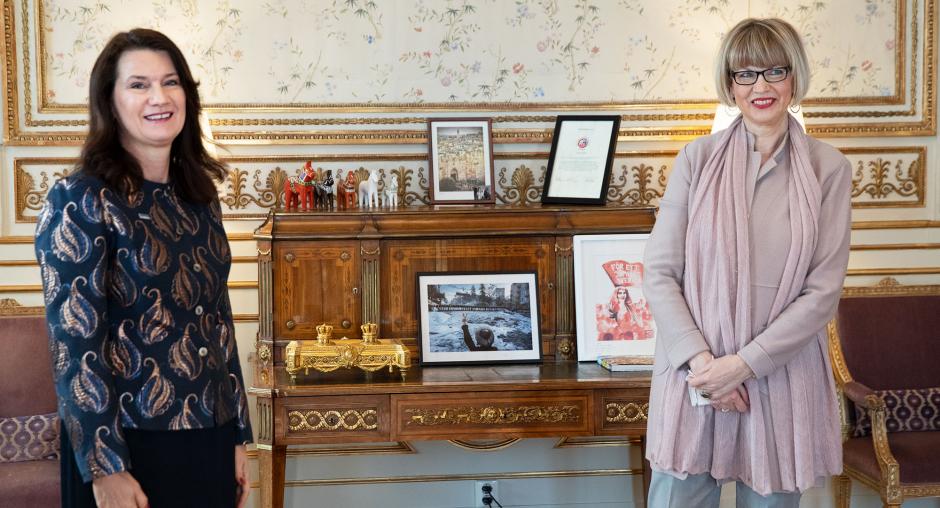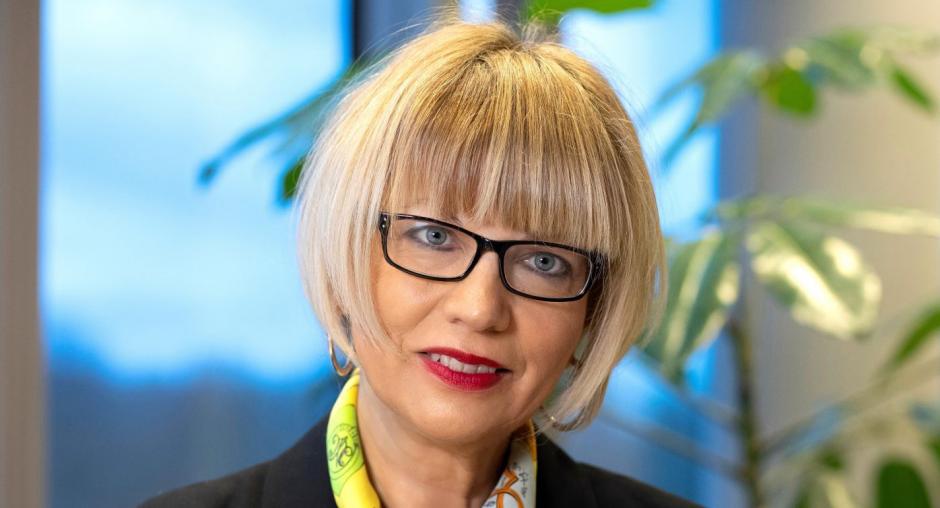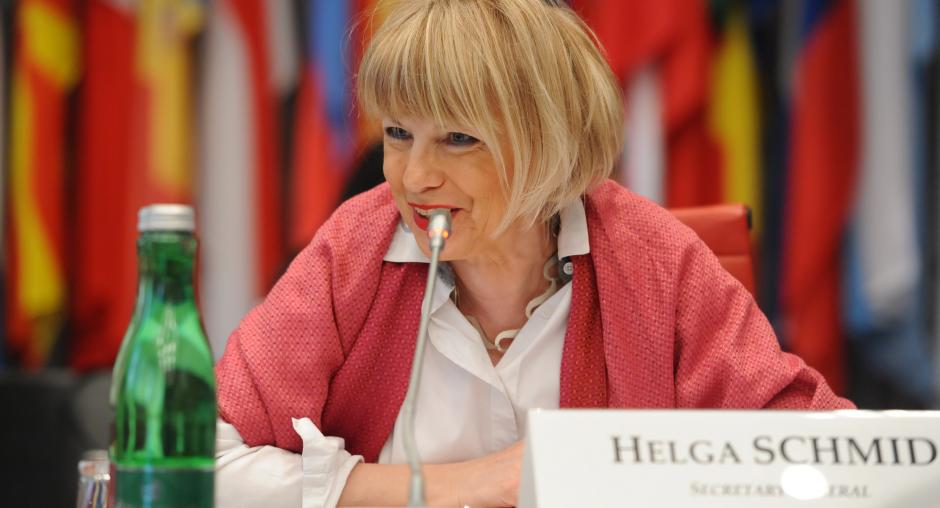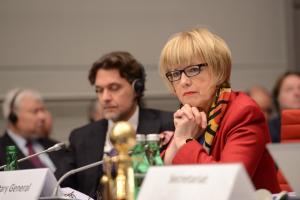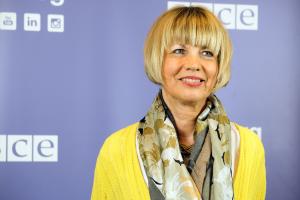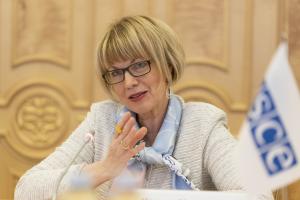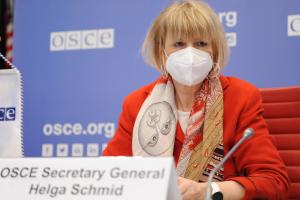Helga Maria Schmid was appointed to the post of Secretary General of the OSCE in December 2020 for a three-year term and then extended until September 2024.
She first joined the diplomatic service as Assistant Private Secretary to the Deputy Foreign Minister of Germany in charge of European Affairs (1990–1991). Since then she has held several prominent diplomatic positions during her career. Early on, she was Political Adviser to Foreign Minister Klaus Kinkel and Head of Cabinet to Foreign Minister Joschka Fischer; and just prior to her appointment as OSCE Secretary General, she was Secretary General for the European External Action Service.
From 2011 to 2016, she was the Deputy Secretary General for Political Affairs for the European External Action Service. Preceding that, she was the Director of the Policy Planning and Early Warning Unit (Policy Unit) of the High Representative for the CFSP in the General Secretariat of the Council of the European Union in Brussels.
Mandate
Political Role:
- Acts as the representative of the Chairperson-in-Office and supports him/her in all activities aimed at fulfilling the goals of the OSCE;
- Participates in the meetings of the OSCE Troika which includes the outgoing, current, and incoming Chairmanships;
- Supports the process of political dialogue and negotiations among participating States;
- Maintains close contacts with all OSCE delegations;
- Provides early warning to the Permanent Council, in consultation with the Chairmanship, on any situation of emerging tensions or conflicts in the OSCE area and suggests possible options for timely and effective response after consulting the participating State(s) concerned;
- May bring to the attention of the decision-making bodies, in consultation with the Chairmanship, any matter relevant to his/her mandate;
- Contributes to and participates in the debates on any of the agenda items of Permanent Council and Forum for Security Co-operation.
Management Role:
- Is the Chief Administrative Officer of the OSCE and head of the OSCE Secretariat;
- Ensures implementation of the decisions of the OSCE;
- Presents the Programme Outline and the Unified Budget Proposal in the Permanent Council;
- Oversees the management of OSCE field operations and co-ordinates their operational work;
- Ensures programmatic co-ordination between the Secretariat, institutions and field operations, as well as among field operations;
- Acts as focal point for co-ordination and consultations among OSCE institutions by inter alia hosting regular co-ordination meetings with the heads of institutions in order to achieve synergy and to avoid duplication of programmes.
Appointment:
- Appointed for a term of three years Ministerial Council, which may be extended for a second and final term of three years
Former Secretaries General
- Thomas Greminger (Switzerland): July 2017 - July 2020
- Lamberto Zannier (Italy): July 2011 – June 2017
- Marc Perrin de Brichambaut (France) : June 2005 – June 2011
- Ján Kubiš (Slovak Republic): June 1999 – June 2005
- Giancarlo Aragona (Italy): June 1996 – June 1999
- Wilhelm Höynck (Germany): June 1993 – June 1996







